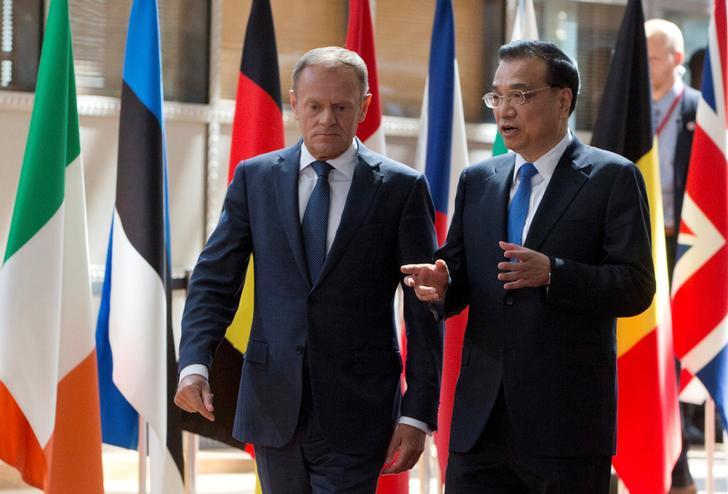
Brussels, 19 June 2017 – The European Union should cancel its upcoming human rights dialogue with China and suspend the exchange until the meetings can bring genuine human rights improvements, seven human rights organizations said today. The next EU-China human rights dialogue is scheduled for June 22-23, 2017, in Brussels. The organizations include Amnesty International, Initiatives for China, the International Campaign for Tibet, the International Service for Human Rights, Human Rights in China, Human Rights Watch, and the Unrepresented Nations and Peoples Organization.
The EU and its member states have committed to throw the EU’s “full weight behind advocates of liberty, democracy and human rights throughout the world,” and the groups have long urged that the EU demonstrate a unified, unambiguous position on human rights in China as the situation there has deteriorated.
Yet, at a summit in Brussels on June 1-2, the EU Council and Commission presidents in public did not forcefully condemn China’s deteriorating human rights situation, nor call for the release of political prisoners, including EU citizens. The EU also did not mark the anniversary of the Tiananmen Square massacre on June 4. And the EU and its member states on June 15 did not deliver a statement under agenda item 4 in the United Nations Human Rights Council – a first for the EU, whose statements over a decade at the council have generally sent a message of solidarity to activists and of warning to Beijing by denouncing the Chinese government’s crackdown on critical voices and persistent violations of basic freedoms.
“On three occasions over three weeks the EU demonstrated no intention, compassion, or strategic vision to stem the tide of human rights abuses in China,” said Sophie Richardson, China director at Human Rights Watch. “The EU should not further harm its credibility, but rather redirect its efforts toward bringing meaningful change to China.”
At the closing EU-China Summit press conference on June 2, EU President Donald Tusk announced the next round of the EU-China human rights dialogue. That dialogue, which will be held on short notice and at a lower governmental level on China’s side, has been marred almost since its inception with a lack of clearly articulated benchmarks for progress, vulnerability to Chinese pressure, and exclusion of independent Chinese voices. As a result, the dialogue has steadily deteriorated into an exercise whose purpose is largely to secure another round of the dialogue, not to make meaningful change in China. Over the past decade, our organizations have made extensive recommendations as to how the dialogue could be improved – few of those recommendations have been accepted.
The EU’s June 2016 China strategy gives the EU the opportunity to suspend and review any of its dozens of bilateral dialogues with China, including the human rights dialogue. The EU should suspend the dialogue rather than proceed with a meaningless low-level exercise, the organizations said. It should establish clear benchmarks for human rights progress in China, including the release of individuals detained, imprisoned, or forcibly disappeared for the peaceful exercise of their basic rights, including criticism of the Chinese government. The EU should publish these benchmarks to advance public scrutiny and accountability of the EU’s China policy, and to ensure that the Chinese public is informed about the EU benchmarks. These benchmarks should be integrated into all EU and EU member states’ high-level meetings with China.
“The EU’s failure to speak out on Beijing’s rights violations is a body blow to independent activists across China and a betrayal of the EU’s proclaimed human rights commitments,” said Iverna McGowan, head of European Institutions Office at Amnesty International. “Instead of a forum for promoting rights, the EU-China human rights dialogue has become a cheap alibi for EU leaders to avoid thorny rights issues in other high level discussions.”